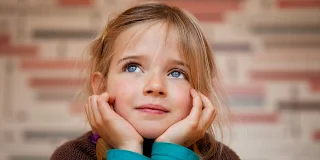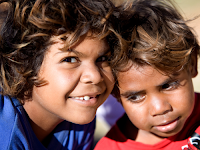Schools in Australia have a Sun Safe No Hat No Play Policy. This protects the long-term health of children in light of what we know about over exposure to the sun and skin damage. It’s a reasonable preventative health measure.
A young child (6 years old) recently in a
school playground was crying, hatless in a shaded area looking on as her ‘hat
ready’ peers played on the playground equipment having the greatest time ever!
I asked her what had happened (A=Activating
event) and she replied
‘I can’t play on the playground with my
friend because I have no hat!’ So I reflected back to her what she said (as
counsellors do).
‘You have forgotten your hat and you can’t
play with your friends. Is that right?’
‘Yes.’ She said through a veil of tears.
‘How do you feel about this?’ I asked (Emotional Consequence of A=C).
‘I feel very sad because I can’t play with
my friends on the equipment. The teacher said I have to stay in the shade. She
is mean. She makes me mad!’
Again I reflected back to her thusly ‘you
feel sad because you have no hat and you can’t play with your friends on the
equipment and you feel mad too because the teacher says you have to stay in the
shade. You say she is mean. Is that right?’
‘That’s right she makes me mad and it’s not
fair that I can’t play with my friends.’
‘Ok you feel mad and sad because you can’t
play with your friends and the teacher is mean because she won’t let you play
in the sun and it’s not fair.’
Our little friend believes that the event
(A) ‘I have to stay in the shade’ is making her act and feel as she does (C).
Someone or something is making her mad and thus in her mind A=C i.e. She
does not accept any responsibility for her behaviour and feelings. Nonetheless
she is about to learn some useful ideas about the way life works because the
teacher on duty (me) is about to pounce and give her an REBE (Rational Emotive
Behaviour Education) booster!
I say:
‘If you think it is really bad and it’s the
worst thing that can ever, ever happen then you will feel mad and angry. This
is Brain Bully thinking, Brain Bully (BB) is trying to trick you. Tell BB that if you h ad a very sore throat or you can’t find your favourite teddy or your dog is
sick and has to go to the vet are much worse than having to play in the shade
because you have no hat.’
She says:
‘Brain Bully is making me sad and mad. Get
lost BB.”
I say:
‘Well done. Now you think, ‘this is bad but
not the worst thing that can happen to me.’ Now you are using helpful thinking.
Brain Friend (BF) thinking helps you to feel better. Do you feel better?’
Now this process may seem long and drawn
out but it can be shortened somewhat by saying in the first instance (assuming
the school teaches REBE across the curriculum) the following:
‘Nobody makes you mad. You make you mad when
you use BB thinking. This is not the worst thing that can happen (‘do you need
an ambulance?). There are bigger problems than this. Tell your self this is a
pain but you can stand it.’
It is useful for our young learner to be
reminded that:
- Things are very bad if you think they are.
- You feel bad when you use BB thinking.
- Challenge BB with BF (‘this is not the worst thing that can happen’) and change how strong you feel (annoyed but not angry) about things.
- How you think about things makes feelings and actions not just what happens to you (the event).
If this is reinforced in all interactions
between teachers and students at school children will generally feel healthily
annoyed, concerned and sad about things rather than anxious, angry and
depressed. That’s what REBE is all about. Try it and see!








